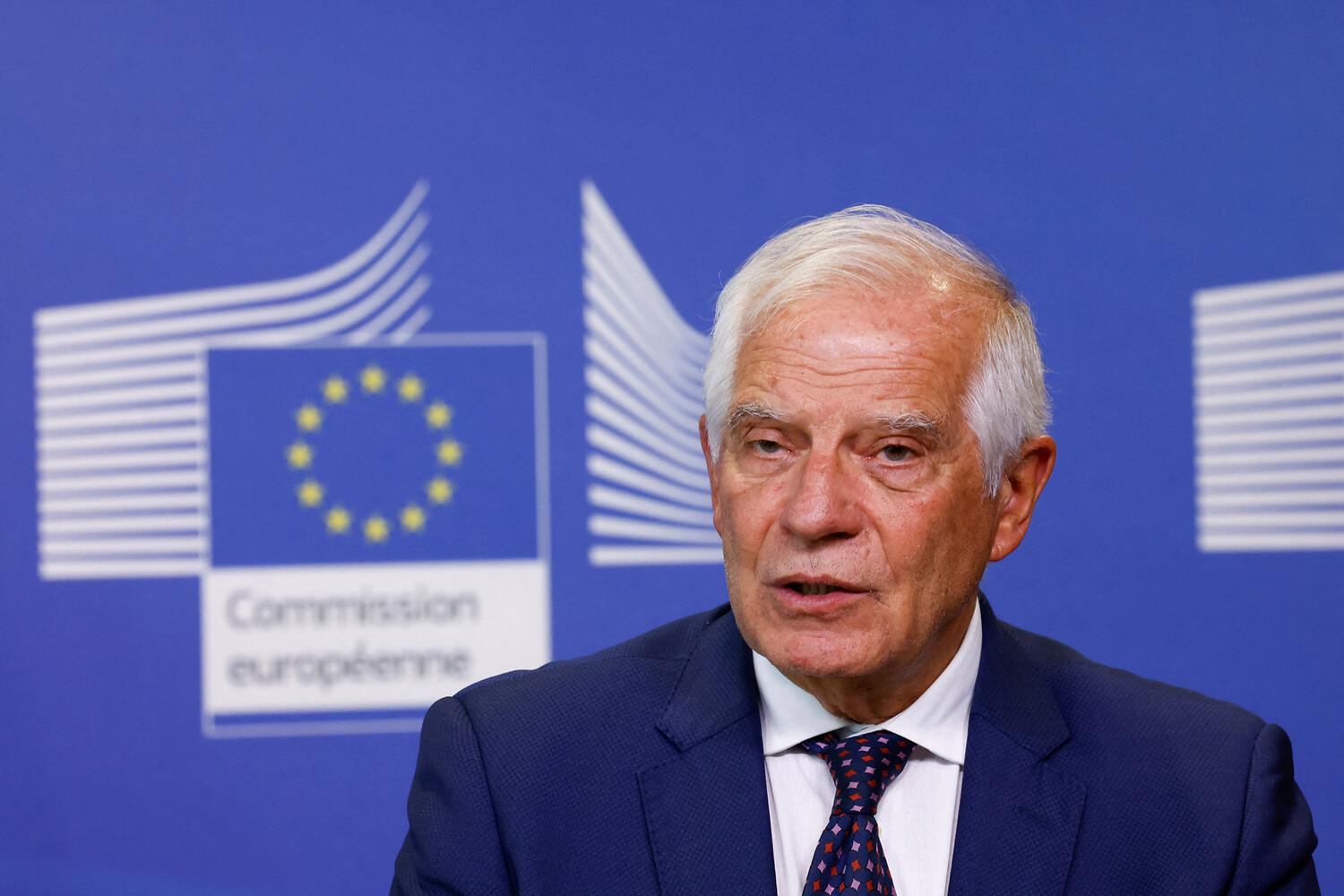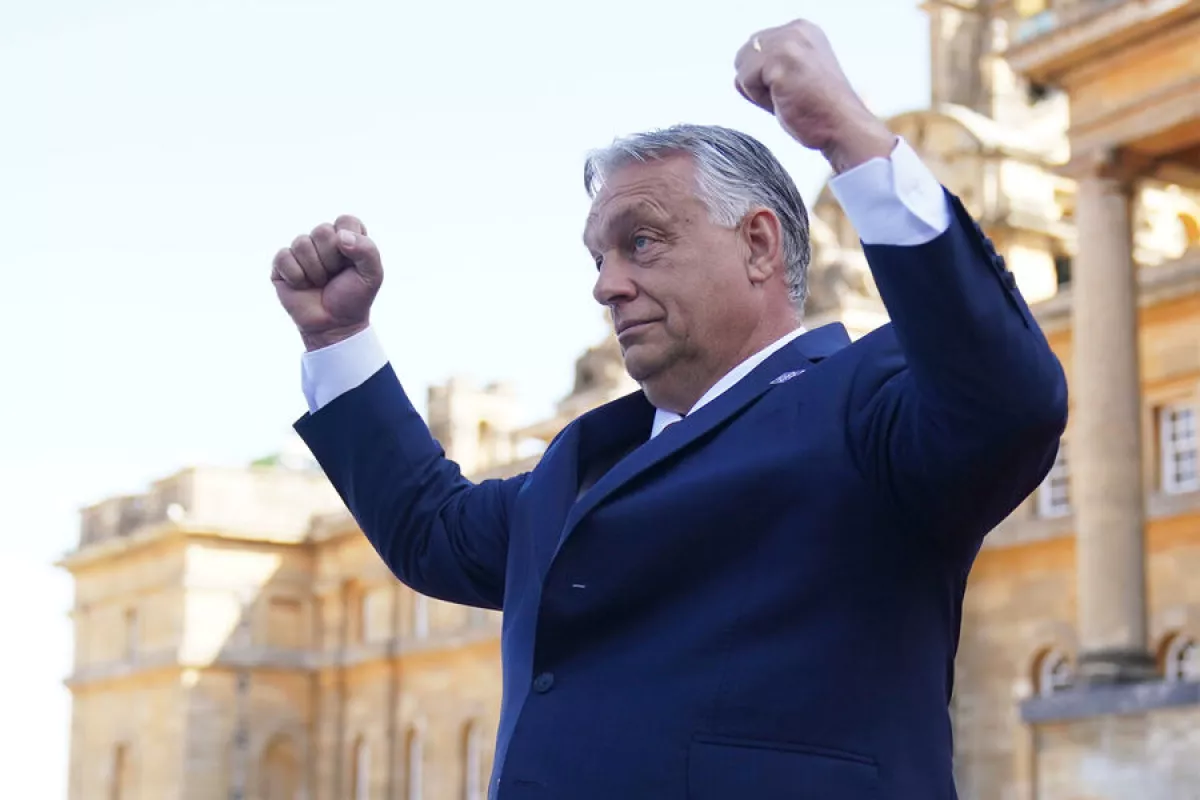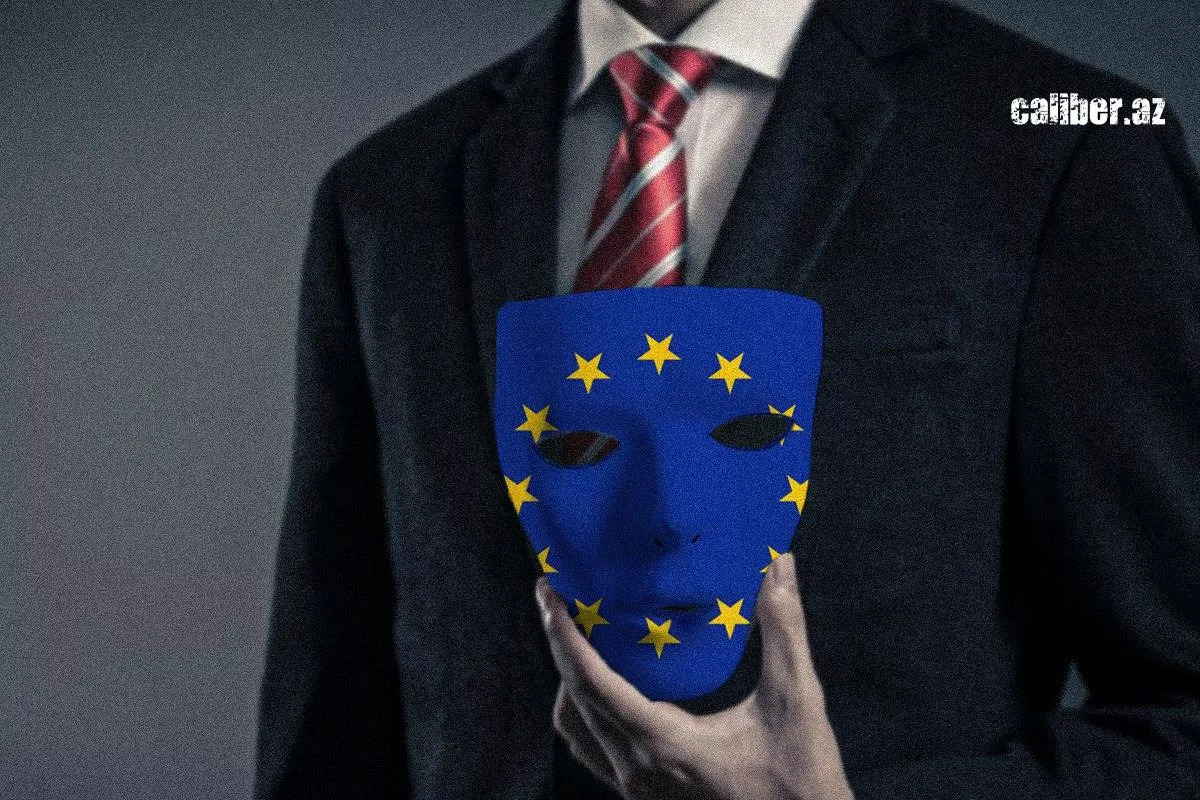Sunset over blooming “garden” Borrell on Europe’s fading global status
The EU’s top diplomat, on the eve of his departure from office, declared: “Europe has lost its status as a global centre of influence, and its current position is becoming fragile.” What is really happening to the Old Continent?
Europe's uncertain future
On November 29, Josep Borrell stated in an interview with RNE radio: “Europeans cannot continue to think of themselves as the centre of the world, because they are not, and have not been for a long time.” The now-former head of the EU's foreign policy lamented that Europe accounts for just 5% of the world's population and is rapidly losing its weight in the global economy. Borrell offered a sobering conclusion: “We face significant technological lag in advanced sectors, a very low birth rate, and very weak defence.”
He also unleashed similar tirades on the website of his office, stating: “The events we have had to face during the last several months have – unfortunately – confirmed the diagnosis made earlier: Europe is in danger. Our geopolitical environment is deteriorating, and conflicts and crises are multiplying on our doorstep. From Ukraine to the Middle East, via South Caucasus, the Horn of Africa or the Sahel.” Borrell seems haunted by the spectre of a global anti-Western coalition, which he believes could materialize at any moment, emerging from the mirages of the African desert.
Why did Josep Borrell make these statements just one day before leaving his position as the EU’s High Representative for Foreign Affairs? Is he seeking to confess? Or is this his usual duplicity? After all, Europe’s crisis is partly his responsibility as Brussels’ chief diplomat and former President of the European Parliament. However, it is more likely that these revelations are timed to coincide with Donald Trump’s re-election as U.S. President, a development Borrell greeted with notable criticism. In his view, Trump’s presidency has made Europe’s security “more uncertain.”
Manager of double standards
Furthermore, in February of this year, at the Munich Security Conference, Josep Borrell said: “If the current global geopolitical tensions continue to evolve in the direction of ‘the West against the Rest’, Europe’s future risks to be bleak. The era of Western dominance has indeed definitively ended. While this has been theoretically understood, we have not always drawn all practical conclusions from this new reality.”

But even earlier, Josep Borrell expressed some shrewd thoughts, at least ones that were quite pragmatic. In 2022, he stated that the West’s prosperity was based on cheap gas from Russia and access to the big markets of China. He also had moments of clarity at the beginning of this year, when the head of EU foreign policy and security stated that the West should not set itself apart from the rest of the world. One of Europe’s priorities, he said, is improving relations with the Global South, which rightfully accuses it of “double standards.”
However, who, if not the High Representative of the EU for Foreign Affairs and Security Policy himself, is responsible for the numerous military conflicts around the world, some of which he played a leading role in escalating? At the same time, the High Representative for EU Foreign Affairs made an ambiguous statement this past May: “I used to say to my Ambassadors that diplomacy is the art of managing double standards.”
Josep Borrell, with his famous remark about Europe as a “garden,” supposedly surrounded by wild and dangerous jungles, has essentially become a meme. But these words truly encapsulate the realpolitik of the West. Today, many commentators in the very Global South with whom Borrell supposedly seeks to improve relations accuse him of outright racism.
However, Borrell didn’t stop with his delicate portrayal of the European "garden." In his view, the “gardeners” from Europe shouldn’t just isolate themselves from the “jungle.” He has clearly justified a course of strengthening Western expansion against the Global South. It might seem like things couldn’t go further, but no, Borrell is not satisfied with the current level of Western intervention and control over the rest of the world. Therefore, he once again calls for action: “The gardeners have to go to the jungle. Europeans have to be much more engaged with the rest of the world. Otherwise, the rest of the world will invade us, by different ways and means.”
Weeping for lost hegemony
In the recently released 2024 collection of Josep Borrell's speeches, "Europe in the Arc of Fire" (referring to the “arc” of countries striving for independent foreign policies), such remarks are frequent and cover a variety of topics. Like his image of the "gardener" heading into the "jungles" to clear them, the EU’s foreign policy chief has, in many of his speeches, been unusually candid for a diplomat. Speaking at Oxford in May 2024, he directly acknowledged the cause of the West’s current decline: the economic rise of China and the loss of global leadership by the United States.
He stated: “I see that the international system that we were accustomed to after the Cold War no longer exists. America has lost its status as a hegemon. And the post-1945 multilateral world order is losing ground.
I see – as you know – China rising to superpower status. What China has done in the last 40 years is unique in the history of humankind. In the last 30 years, China’s share of the world’s GDP, at PPP, has gone from 6 % to almost 20 %, while we Europeans decreased from 21 % to 14 %, and the United States from 20 % to 15 %. This is a dramatic change in the economic landscape
China is becoming a rival for us and for the United States. Not just by manufacturing cheap goods but also as a military power, at the forefront of technological development and building the technologies that will shape our future.”
Borrell acknowledges that the coming century will be the era of China and Southeast Asia as a whole. The EU’s confrontation with China is further complicated by the fact that China is not only a competitor and rival for Europe but also a crucial economic partner upon which it heavily depends.
The European politician expresses frustration with China’s “friendship without limits.” Perhaps, he suggests, a world divided into military blocs and conflicting ideological camps is more aligned with Western interests? In other statements, Borrell’s words reveal a thinly veiled racism. For instance, he dislikes the fact that by 2050, one in four people on Earth will live in Africa. Does this call for urgent “weeding”?
Turning into a "semi-hard" power
Overall, the approach follows the classic manipulation scheme – first, fear and uncertainty are stoked. "Europe could die," dramatically declares Josep Borrell, or more precisely, the ruling political circles behind him in the EU. Then, a plan for salvation is proposed.
The recipe for healing Europe’s decline is, in essence, old and rooted in the long-standing traditions of colonialism. The heavy seasoning of rhetoric about climate change, growing global inequality, and the need for justice should not mislead anyone. To emerge from the crisis, Europe is urged to follow three key directions – uphold its values, foster internal cooperation, and increase its power. The key here is the emphasis on military strength.
The infamous "values" and cooperation have long been clear. However, by the way, even Borrell himself implicitly wants to change some aspects here. For example, in discussing how "authoritarian regimes" are allegedly ready to unite against "democracy," the former President of the European Parliament is, in effect, critiquing the current political structure of the EU. Essentially, he criticizes the fact that individual states still retain too much sovereignty within the Union, exercising their veto power. Borrell, for instance, expresses frustration with Hungarian Prime Minister Viktor Orban, who blocks EU initiatives that do not align with his country's national interests.

As for power, according to the former EU High Representative, it is the decisive factor in opposing “authoritarian leaders.” This term is now being applied to most countries of the Global South. And if necessary, if a state leader seeks to pursue an independent policy, the label of "authoritarian" can be attached to any country, including former close allies. Hungary and Georgia serve as examples of this trend.
Currently, the military budget of EU countries is already comparable to China’s defence spending. But Borrell advocates for further strengthening the "European pillar" within NATO, rapidly expanding European military industry and corresponding budgets, with the aim of achieving military independence from the United States. He also deems it necessary to establish a unified European fund for military needs.
However, not everyone in the EU agrees with this approach. Germany, the Netherlands, and Denmark have already expressed concern over attempts by the European Commission to seize control over defence procurement. But according to Borrell, the EU has already abandoned the policy of “soft power” and is evolving into a “semi-hard” power.
But it's not just about tanks—Borrell believes that the West is now competing not only with military means but also in the battle for people's minds. And there should be no hesitation in spending resources to promote its narratives.
The United States is criticized for shifting its historic competition with China to a “new frontline in the world,” in the Indo-Pacific region. Meanwhile, Europe remains faced with Russia, which is seemingly bent on its destruction. Borrell also has criticisms for developing countries—he argues that the "Global South" has assessed the existing global tensions and seeks to benefit from them, sometimes very skillfully. The EU is also more dependent on external trade, particularly with China, than the United States.
But most importantly, Borrell admitted in American Oxford that the EU must strain its remaining resources to stop losing the competition not only to China but also to the United States. China is criticized for state support of its economy, but at the same time, the United States is starting to do the same. And this does not sit well with Josep Borrell, a nominal member of the Spanish Socialist Workers' Party, just as he dislikes the U.S. proposal for the EU to also provide state subsidies to its manufacturers. He also laments America's cheap energy resources, which are out of reach for Europeans.
Borrell refers to China as the “elephant in the room.” Its successes continue to shock the former head of European diplomacy, and his greatest fear is the competition in emerging industries: "China is doing extraordinarily well in anything related to renewables. In a single year, they have created much more power capacity through renewables that the United States in its whole history."

Moreover, the expansion of the European Union is justified by the idea that "Europe, as a space that is bigger than the European Union." It is suggested that beyond the EU's borders, there are many people who "know what it is to be European" (i.e., elites, "superhumans"—A.L.), who wish to join the EU and so on. Additionally, Borrell puts forward the concept of the New West, standing in opposition to the New East. The New West, according to him, includes not only the United States, Europe, and Canada, but also Japan, South Korea, and Australia. This classification extends beyond geography, yet it follows the logic of military alliances and globalism.
Josep Borrell is not the only one recently sounding the alarm about the future of Eurocentrism. In September, former President of the European Central Bank Mario Draghi delivered a special report to the European Commission on how Europe is losing the competitive battle to China and the United States. Then, in October, French President Macron directly stated, "The EU could be 'killed' by the new multipolar world order."
This statement directly implies that the policy of unchecked hegemony is the primary condition for the survival of the West. However, by continuing to think and act within the frameworks of fierce competition and a neocolonial approach—albeit under the guise of phrases about "social and environmental sustainability"—one should not be surprised that Europe, which sought to surround itself with a ring of friends, has instead found itself in a "ring of fire."








